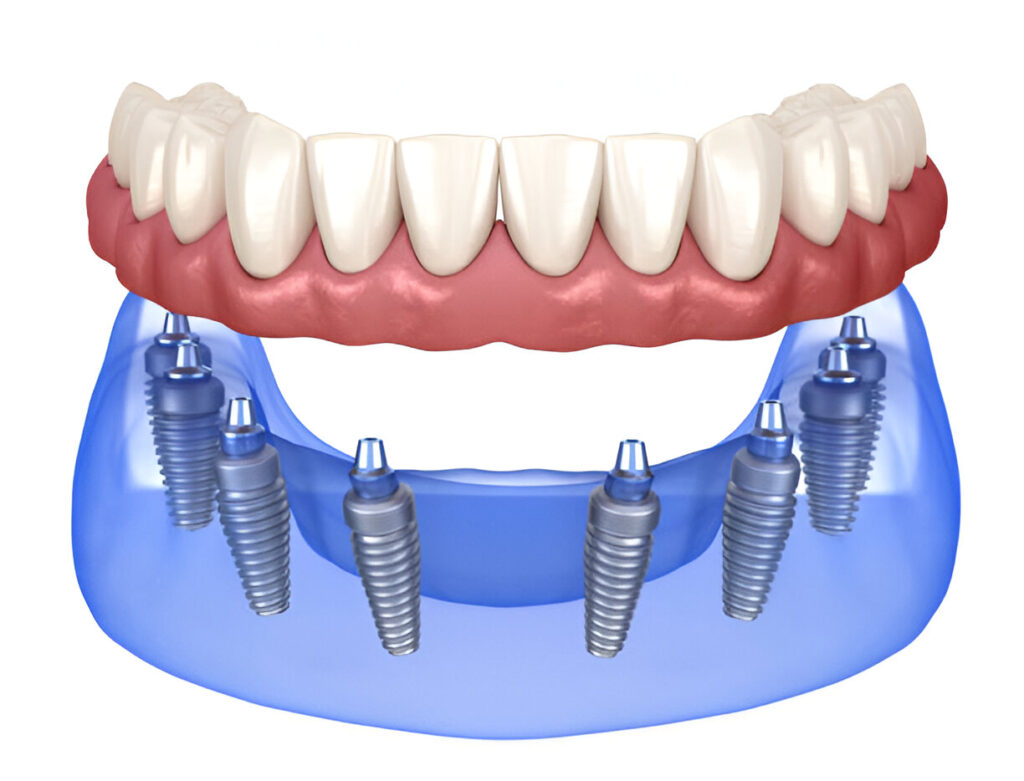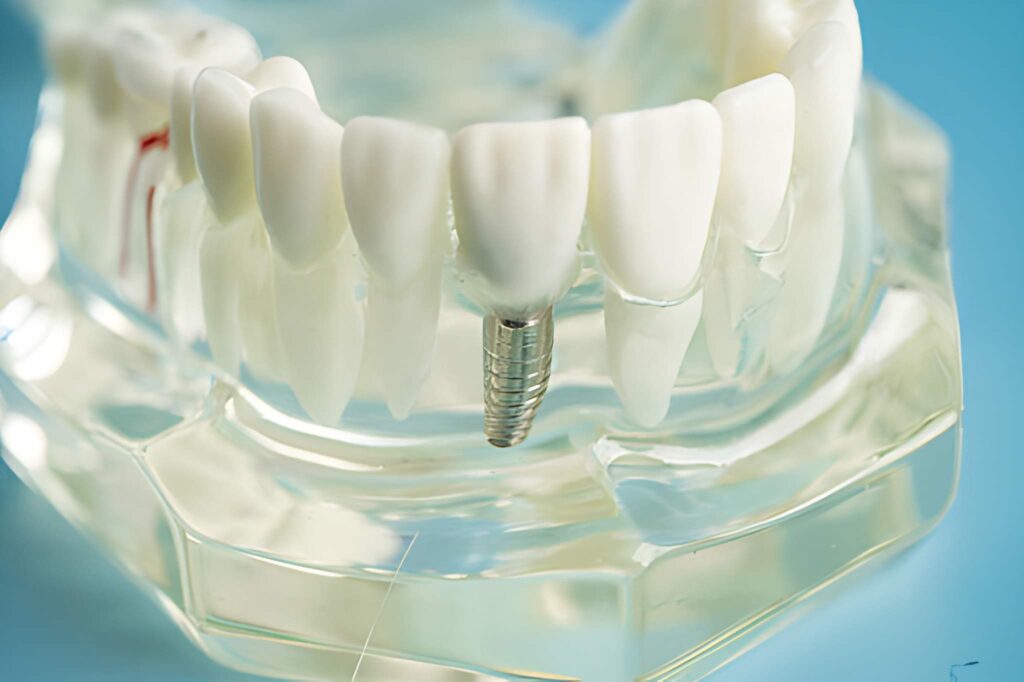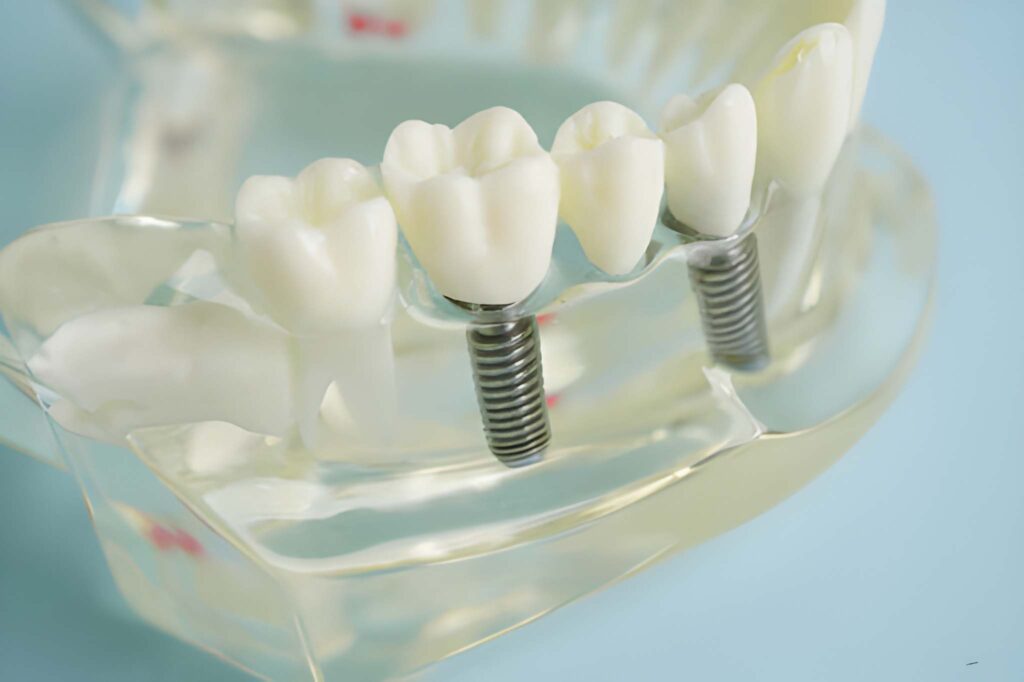Dental implants are a popular and effective solution for replacing missing teeth, providing a long-term, natural-looking restoration. However, it is essential to follow proper care and dietary restrictions during the healing process to ensure successful implant integration. Knowing when you can return to eating normally after dental implants is crucial for your recovery. Typically, it can take several days to weeks for your mouth to heal sufficiently, and the type of food you can eat gradually progresses. This article outlines the healing timeline and provides useful dietary advice after dental implant surgery.
What Are Dental Implants?
Dental implants in Aberdeen are titanium posts surgically placed into the jawbone to replace missing tooth roots. Once integrated with the bone, they provide a stable foundation for a crown, bridge, or denture. Unlike traditional dentures, dental implants do not shift or move, offering a long-term, permanent solution. The procedure is minimally invasive, providing excellent results when cared for properly. However, the healing process requires patience, and during recovery, patients must follow specific dietary instructions to avoid complications and ensure the successful integration of the implants.
How Long Does an Implant Surgery Take for One Tooth?
Immediate Aftercare and First Few Days
Following dental implant surgery, it’s crucial to give your mouth time to heal. For the first 24-48 hours, you should avoid any hard, crunchy, or chewy foods that could disrupt the healing process. The initial recovery period is usually the most uncomfortable, with minor swelling, discomfort, and potential bleeding. During this time, stick to a diet of soft foods and liquids that require little to no chewing. Eating soft, nutritious foods will not only help with your recovery but also prevent irritating or damaging the surgical site.
What to Eat in the First 24-48 Hours?
For the first 24 to 48 hours after your dental implant surgery, you should consume only liquids and soft foods. Some great options include smoothies (without seeds), mashed potatoes, scrambled eggs, clear broths, Greek yogurt, and protein shakes. These foods are easy to consume, won’t irritate the implant site, and provide essential nutrients that aid in the healing process. Avoid hot foods and beverages, as they can increase swelling or discomfort in the surgical area. Stick to foods that are nutrient-rich, easy to swallow, and gentle on your gums during this sensitive period.
Are Dental Implants as Good as Real Teeth?
Foods to Avoid After Dental Implant Surgery
Immediately after the procedure, there are several foods you should avoid to ensure the best recovery. Spicy foods, like hot salsa, can irritate the gums and slow down healing. Crunchy foods, such as chips, popcorn, and raw vegetables, should also be avoided because they can cause damage or discomfort to the implant site. Sticky foods like caramel or gum can dislodge temporary restorations, while acidic foods, such as citrus fruits and tomatoes, may cause irritation. It’s essential to steer clear of any foods that could disrupt the healing process or risk infection during the initial recovery phase.
What Foods to Avoid After Dental Implants?
When Can I Eat Solid Foods Again?
After the first few days, you can begin incorporating more solid foods into your diet. Start with soft foods like scrambled eggs, pasta, and cooked vegetables. It’s important not to chew directly on the implant site during this phase, as the area is still healing. At this stage, you can gradually introduce foods that are easier to chew but still avoid anything that requires heavy biting or could cause irritation. Keep in mind that every patient heals at a different rate, so it’s essential to follow your dentist’s advice regarding when it’s safe to resume normal eating.
How Long Does It Take to Eat Normally After Dental Implants?
Typically, most patients can return to their normal diet within seven to ten days after the procedure. However, this timeline can vary depending on your recovery speed, the complexity of the surgery, and your overall health. After three to six months, when the implants have fully integrated with the bone (a process called osseointegration), you should be able to eat normally. The implant site will have healed, and you can comfortably eat all types of food without fear of damaging your new dental implants.
Long-Term Care and Maintaining Healthy Implants
Once you’ve returned to eating normally, it’s important to maintain good oral hygiene to ensure the longevity of your dental implants. Brush and floss regularly, and avoid eating excessively hard or sticky foods that could cause damage. Regular check-ups with your dentist are also essential for monitoring the health of your implants. By keeping up with good oral care and avoiding harmful habits, you can ensure that your implants remain strong and durable for many years. Follow-up care will help prevent complications and keep your new teeth functioning properly.
Signs You May Need to Adjust Your Diet
If you experience pain or discomfort when eating certain foods after dental implant surgery, it may indicate that the healing process is not complete. If something feels wrong when you chew, or if you notice unusual swelling or bleeding, it’s crucial to consult your dentist. There may be an issue with the implant or the healing process that needs attention. Listening to your body and avoiding foods that cause discomfort is essential to prevent any complications. Don’t hesitate to reach out to your dentist if you have concerns about your diet during the recovery period.
Conclusion
The recovery period after dental implants involves a gradual process of reintroducing foods into your diet. While you’ll need to avoid certain foods immediately after surgery, you can return to eating normally once your implants have properly integrated into the jawbone. In the first days, soft, nutritious foods and hydration will help you heal efficiently. Over time, you can begin incorporating more solid foods and resume a normal diet. Always follow your dentist’s guidance during your recovery to ensure optimal healing and the long-term success of your implants. With patience and care, you’ll soon be enjoying all your favourite foods again!
Take the First Step Towards a Confident Smile
At Holburn Dental and Implant Centre, we are committed to providing high-quality dental implants that restore your smile and confidence. If you’re considering dental implants, schedule a consultation with our expert team to learn more about the process and how we can help you achieve optimal oral health.
Frequently Asked Question
How long do I need to wait to eat solid foods after dental implants?
You should wait at least 7 to 10 days before eating solid foods, gradually introducing them as the area heals. Follow your dentist’s advice for a safe transition back to your regular diet.
Can I eat normally right after dental implant surgery?
No, it’s essential to stick to soft foods and liquids for the first 24-48 hours. This helps prevent discomfort and promotes healing at the implant site.
Are there any foods I should avoid long-term after dental implants?
Avoid foods that are excessively hard, sticky, or crunchy, such as hard candy, nuts, or sticky sweets. These could potentially damage your dental implants.
How can I speed up my recovery after dental implant surgery?
A balanced, nutritious diet, staying hydrated, and maintaining good oral hygiene will help your recovery. Following your dentist’s instructions is crucial for faster healing.
Can I drink coffee or tea after dental implant surgery?
It’s best to avoid hot beverages like coffee and tea for the first 24-48 hours, as they can irritate the surgical site. After the initial healing period, moderate consumption is usually fine.
Dental implant Aberdeen at Holburn Dental and Implant Centre




